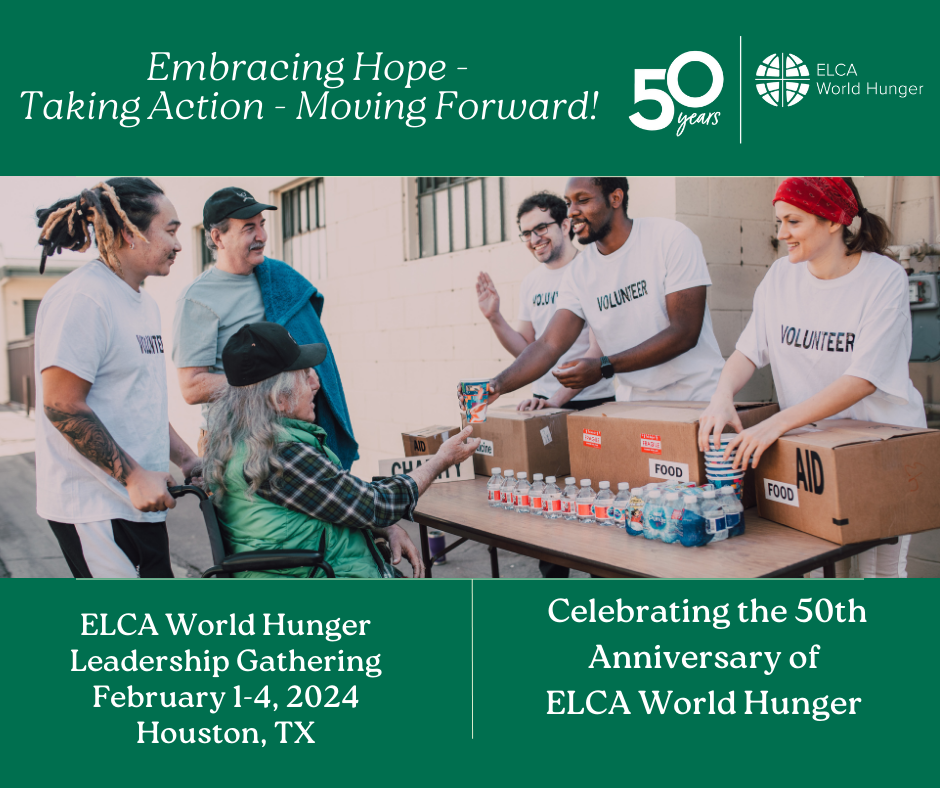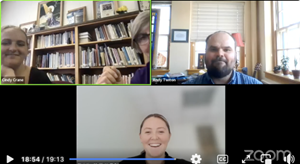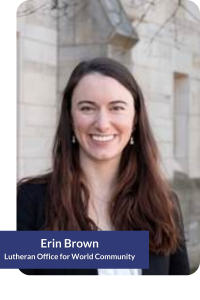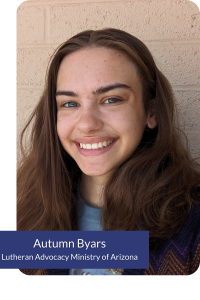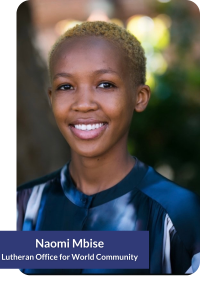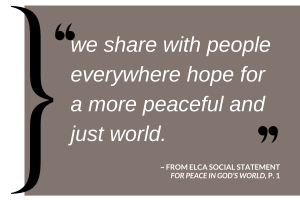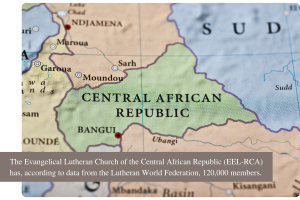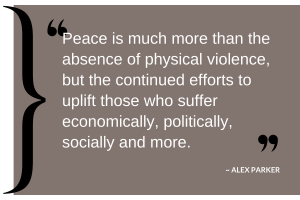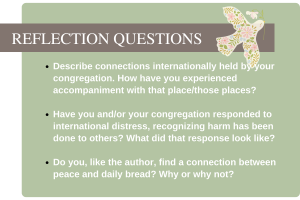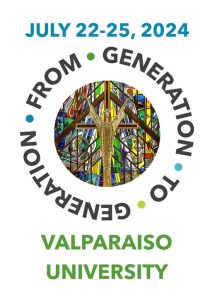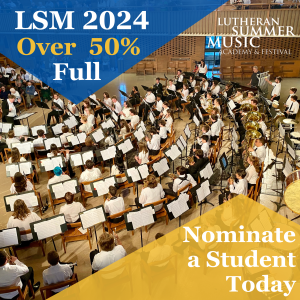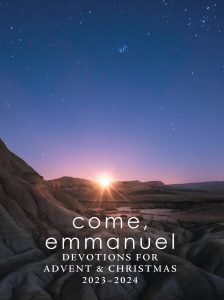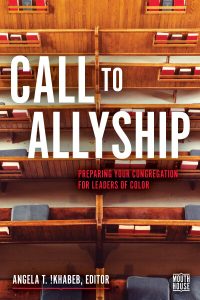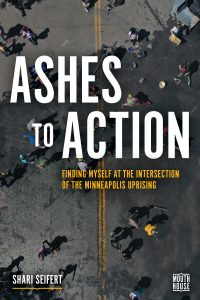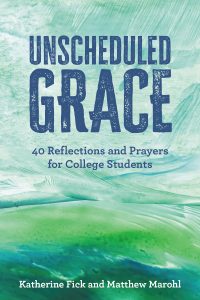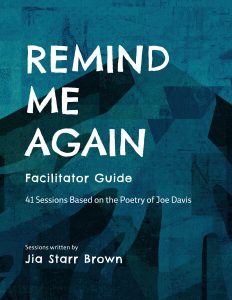Following are updates shared from submissions of the Lutheran Office for World Community and state public policy offices (sppos) in the ELCA Advocacy Network this month. Full list and map of sppos available.
U.N. | ARIZONA | CALIFORNIA | COLORADO |KANSAS | MINNESOTA | WASHINGTON |WISCONSIN
New York
Lutheran Office for World Community (LOWC), U.N. – ELCA.org/lowc
Christine Mangale, Director
- LWF Assembly: Lutheran Office for World Community (LOWC) director Christine Mangale joined more than a thousand participants from around the global Lutheran communion who gathered in Krakow, Poland for the Lutheran World Federation (LWF) Thirteenth Assembly. It took place from 13 to 19 September 2023 under the theme “One Body, One Spirit, One Hope.” The theme is drawn from Ephesians 4:4 (NRSV). The Assembly was hosted by the Evangelical Church of the Augsburg Confession in Poland (ECACP). The Assembly is the LWF’s highest decision-making body which elects a new president and Council and sets directions for the global communion over the coming years. Danish Bishop Henrik Stubkjær was elected as the new president of the LWF. Mangale took part in the Assembly with LWF Action for Justice (AfJ) Unit and ELCA Service and Justice colleagues, and supported several events held, including co-leading a session at the LWF Women’s Pre-Assembly in Wroclaw and a Jarmark workshop at the Assembly.
- U.N. General Assembly: The United Nations General Assembly – High Level Week 2023 marked “a crucial milestone in the journey towards achieving the 2030 Agenda and the urgent need to put the 17 Sustainable Development Goals (SDGs) back on track.” LOWC staff were presence and monitored elements including
-
- SDG Action Weekend (Sept. 16-17) – A call for inclusive collaboration and partnership was a recurring theme. Many stakeholders pointed out the impossibility of progress if specific groups continue to be targeted and excluded. Women, children, people with disabilities, the LGBTQIA+ community, and people migrating are at risk of being left behind.
- March to End Fossil Fuels (Sept. 17)
- SDG Summit (Sept. 18-20) – The year 2023 is the halfway point for the SDGs. Only 15% of the SDG’s targets have been achieved. Covid19, conflict and climate change were named the leading contributing factors for failure to date. While Member States reiterated their commitment to sustainable development, enormous shortfalls remain in funding and actionable political will. Without concrete actions and commitment there is a risk that many will be left behind.
-
-
- Finance for Development (Sept. 19) – Official development assistance (ODA) is below commitments and in trending decline. Developing states are increasingly vocal about their nearly insurmountable challenges resulting from a legacy of colonial occupation followed by cycles of increasing debt. States locked in this debt crisis have formed partnerships with increasing numbers of mild income and industrialized states calling for negotiations toward a UN Tax treaty.
- Annual U.N. Ecumenical Prayer Service for Children and Young People (Sept. 19)
- Freedom of Religion (Sept. 20-21)
- PEPFAR-UNAIDS Communities of Faith Initiative Breakfast (Sept. 20)
- Climate and Migration Workshop (Sept. 19) – ACT Alliance, Bread for the World, and Open Society Foundations co-hosted a workshop titled: “Addressing the Protection Gap- Human Mobility and the Climate Crisis in International Frameworks.”
Arizona
Lutheran Advocacy Ministry Arizona (LAMA) – lamaz.org
Solveig Muus, Director
Lutheran Advocacy Ministry Arizona (LAMA) hosted the ELCA-affiliated state public policy office (SPPO) directors, D.C. advocacy staff and Hunger Advocacy Fellows at a retreat at Spirit in the Desert in September – that was an amazing opportunity for learning and sharing!
We welcomed our new Hunger Advocacy Fellow, Autumn Byars, to the team for a year of advocacy training, congregational engagement, faith formation and much more. Byars we’re delighted to have this amazing person working in our office. Thank you to ELCA World Hunger!
Following the unanimous vote on our Hunger Resolution at the Grand Canyon Synod Assembly in June, we continue to record congregational responses to a synod-wide Hunger Ministry Survey. To date, 100% of the congregations are involved in at least one feeding ministry. We continue legislative and congregational visits to share updates and invite new folks to join LAMA’s mission, strengthening our network of churches and advocates.
LAMA’s annual Summit is on November 4th. Congregational liaisons, synod hunger leaders, clergy, policy council members, staff and community members will gather to explore the theme of Advocacy as a Spiritual Practice.
Following a productive Policy Council retreat, LAMA identified its policy priorities for 2024:
- Food Insecurity and the root causes of hunger in Arizona
- Voting and Civic Engagement, providing education on the intersection of voting and justice and encouraging faithful voter participation
- Water as a precious resource in the face of droughts and population growth in Arizona
- Housing and Homelessness in partnership with Lutheran Social Services of the Southwest
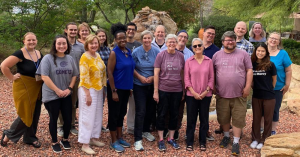
State Public Policy Office directors, DC advocacy Staff and Hunger Advocacy Fellows at the Spirit in the Desert Retreat
California
Lutheran Office of Public Policy – California (LOPP-CA) – lutheranpublicpolicyca.org
Regina Banks, Director
The deadline for Governor Newsom to sign or veto bills passed on October 14th. There were policy victories in the 2023 legislative session, but there were also notable losses. Here are the results of some bills the Lutheran Office of Public Policy – California (LOPPCA) was actively tracking and advocating around this session:
Signed-
SB 4 (Wiener)- This is a huge advocacy win this year! SB 4 will allow faith institutions and non-profit colleges to build affordable housing on their lands despite previous zoning restrictions.
SB 253 (Wiener)- One of the major climate bills this year, which was a part of the corporate accountability package, SB 253 requires large corporations to report their emissions in all phases of their manufacturing, operations, and supply chain processes.
SB 616 (Gonzalez)- Expands the required amount of paid sick leave provided to an employee from 3 to 5 days.
Vetoed/Failed in Legislature-
AB 249 (Holden)- Clean school drinking water; lead testing and infrastructure improvements. This is one of our Lobby Day bills that was unexpectedly vetoed.
AB 1498 (Gipson)- Would have created a minimum value of $300 for the California Earned Income Tax Credit.
AB 524 (Wicks)- Would have prohibited discrimination against employees based on their family caregiver status.
Colorado
Lutheran Advocacy Ministry Colorado (LAM-CO) – lam-co.org
Peter Severson, Director
VOTER GUIDE GOES LIVE: The 2023 edition of Lutheran Advocacy Ministry Colorado’s (LAM-CO) annual Voter Guide is now available online! Check out https://www.rmselca.org/ColoradoBallot2023 to see our position and analysis for each of Colorado’s statewide ballot measures, Prop HH and Prop II.
CHRISTIAN UNITY GATHERING: LAM-CO Director Peter Severson attended the 2023 Christian Unity Gathering of the National Council of Churches in Nashville, Tenn., representing the ELCA on the Joint Action and Advocacy for Justice and Peace Table. The program focused on addressing the role of the church in a public square that is increasingly besieged by extremism and nationalism. The ecumenical gathering was marked by spirited worship, thoughtful conversation and joyful reconnection.
Kansas
Kansas Interfaith Action (KIFA) – KIFA.org
Rabbi Moti Rieber, Executive Director
Kansas Interfaith Action (KIFA) is holding a series of panel discussions throughout the state in October and November to explore Christian nationalism
Christian nationalism has been called by “the single biggest threat to religious freedom in the United States today.” It holds that the United States is defined by Christianity, and that the
Called “Countering the Threat of White Christian Nationalism,” these conversations will include an academic to explain what Christian nationalism is and how it is affecting state and national politics; a pastor to talk about how it is a twisting of the teachings of Christianity and why it is important, particularly for white Christians, to stand against Christian nationalism; and Rabbi Moti Rieber, executive director of KIFA, who will explore how this tendency is being used to push regressive policies in a wide range of areas in Kansas and throughout the nation.
The events will take place in Emporia, Wichita, Salina, Fairway, Newton and Manhattan, Kan., throughout October and early November. Visit KansasInterfaithAction.org for more information and to register.
Minnesota
Tammy Walhof, Director
Energy Tax Credits & Rebates: As director of Lutheran Advocacy – Minnesota, I recently attended a full day event to learn more about the opportunities. State programs are just getting up and running, and guidance is still coming regarding federal options. There are exciting opportunities for churches and nonprofits (tax credits for entities that don’t pay taxes). Some homeowner options are geared toward lower and
lower-middle income households so they don’t get left out of energy transitions. I’ve been in touch with colleagues from a partner organization about jointly planning an event (or series of events) to help churches learn what is available. Even before that, it helps to assess if there are actions needed first (new roof or upgraded electric panel). There is some funding to help with preparation, too.
COP28 UN International Climate Conference: I am honored to be one of a few people representing the ELCA in Dubai for the upcoming conference. I plan to follow the Land Use track which includes agriculture, forestry, and food issues. Trainings and other preparations are ongoing in anticipation.
Homes for All Planning: Our Homes for All Coalition is just beginning planning for the next session. We did get major legislation and funding in the last session, but our legislators and the public need to understand the housing/homelessness crisis was decades in the making, and will require significantly more commitments at the federal, state, and local levels. Please watch your email for federal action alerts this fall. If Congress cuts housing in budget actions, it could wipe out many of our state gains.
Pennsylvania
Lutheran Advocacy Ministry in Pennsylvania (LAMPa) – lutheranadvocacypa.org
Tracey DePasquale, Director
The legislature returned in September to the as-yet-unfinished work of passing code bills needed to enact the spending plan signed in August after a showdown over state-funded vouchers for students to attend private and religious schools.
Lutheran Advocacy Ministry in Pennsylvania (LAMPa) welcomed Hunger Advocacy Fellow Quentin Bernhard in September. Bernhard and Director Tracey DePasquale joined ELCA-affiliated state public policy office nationalism. LAMPa also welcomed four new policy council members, just in time for the annual retreat, which focused on relationship building and understanding how they and LAMPa fit into the life of the wider church.
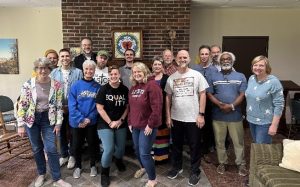
LAMPa Annual Retreat
LAMPa co-hosted a convening of the Pennsylvania Hunger Action Coalition. Teams presented their priorities for our common agenda for 2024.
DePasquale participated on state Emergency Food Assistance Advisory Council in making recommendations to the Department of Agriculture for the upcoming budget.
In other items, LAMPa staff:
- Gathered reports from hunger ministries to issue an alert regarding WIC funding and collaborated with ELCA federal advocacy staff in preparing for Hill visits on the Farm Bill with Penn. synod bishops.
- Organized depolarization training. Register here for the Nov. 8 interactive virtual event.
- Engaged advocates in a social media campaign for Season of Creation.
- Helped congregations add advocacy to “God’s work. Our hands.” Sunday.
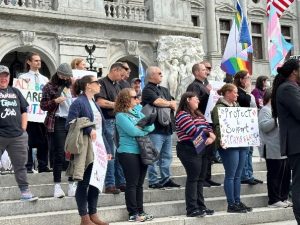
Joined Lutheran advocates rallying in support of safe schools for trans youth.
Washington
Faith Action Network (FANWA) – fanwa.org
Elise DeGooyer, Executive Director
This month we welcomed Tomo Duke as our ELCA Hunger Advocacy Fellow for an internship year funded by ELCA World Hunger
with our ELCA Witness in Society partners. Duke brings ecumenical and interfaith experiences to our work to address root causes of hunger. We also welcomed a new Faith Action Network (FAN) Network Events Manager, Alex Robinson, who brings a background in theater and event production for faith communities.
As we work on our state legislative agenda, we focused our advocacy attention on food justice this past month. We invited our network to our annual Food Week of Action (October 15-22). Leading up to the week, we compiled and shared this resource of advocacy opportunities for individuals and communities of faith and conscience to plan an action or raise awareness in their time of worship or gatherings. During the week, we also offered an Anti-Hunger Advocacy webinar where we covered anti-hunger policy efforts and the next legislative priorities. We addressed the importance of advocating for federal legislation like the Farm Bill and the WIC program for nutrition access for marginalized populations and state legislation like Free School Meals for All Students. We have earnestly invited and encouraged our network to equip their faith-driven compassion and social services for hungry communities with policy advocacy.
FAN staff have been setting up regional cluster meetings for our network, from Spokane to Wenatchee, from the Puget Sound region to Vancouver, and listened to their concerns during this interim time between legislative sessions. It is a valuable opportunity for us to hear more about local organizing efforts and how FAN can be supportive.
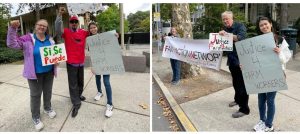
FAN Staff joined hundreds of Windmill mushroom workers, UFW, and supporters to demand the workers’ union rights.
Wisconsin
The Lutheran Office for Public Policy in Wisconsin (LOPPW) – loppw.org
The Rev. Cindy Crane, Director
Lutheran Office of Public Policy – Wisconsin (LOPPW) interviewed Christine Moffett who is the ELCA Program Director for Environment and Energy. She discussed her work on climate change, water, and different federal efforts she is working on. She also told us about the hope she has for the future as a young adult. Learn more about the 2023 Senate Bill 312 through this action alert: Hold Polluters Responsible for Contaminants they Produce. It would adjust Senate Bill 312 to help the Department of Natural Resources to thrive in doing their work to address the insidious problem of PFAS (forever chemicals) in our water. To learn more about PFAS, please see our issue paper from our spring advocacy day: PFAS Issue Paper
As was intended, there is a bill to define how the $125 million will be spent. Senate Bill 312 unfortunately includes limiting the Department of Natural Resources’ ability to hold polluters responsible for the contaminants they produce in our water. Learn more here:
Expand Voting Access
Senate Bill 39 and Assembly Bill 38 expand voting access by allowing people to opt-in through email to receive updates via text about their absentee ballots as well as request their absentee ballots this way. Support this bipartisan effort! Read the bill here: (23-1550/1) (wisconsin.gov). Learn more here.

